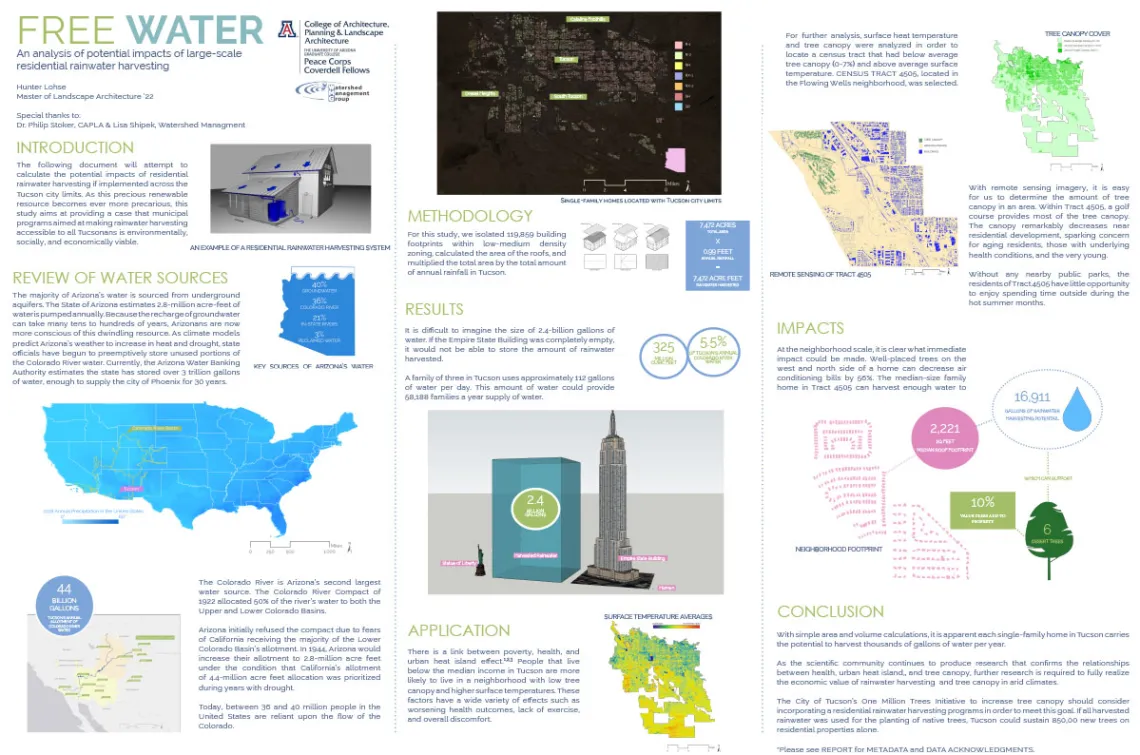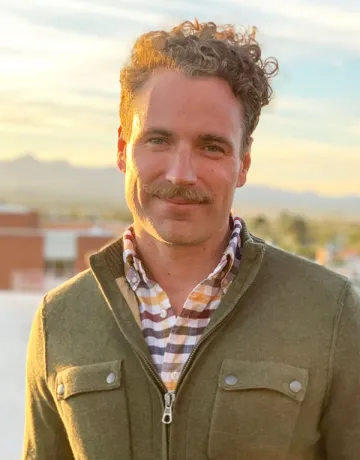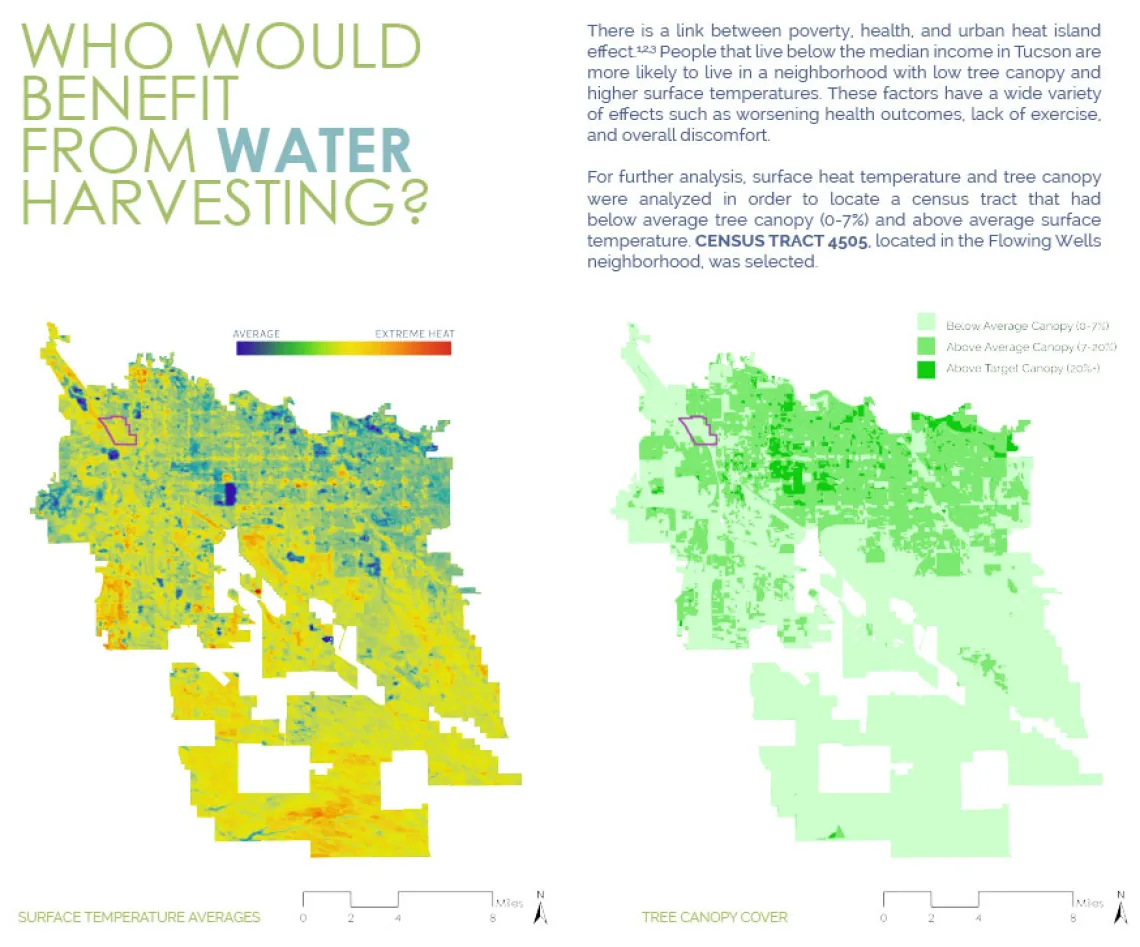Rainwater Harvesting Analysis by Hunter Lohse ’22 MLA Takes Second Prize at UArizona 2021 Student Showcase

Free Water poster by Hunter Lohse '22 MLA.
For the past 29 years, the University of Arizona’s Graduate and Professional Student Council has hosted its Student Showcase, a student-run exhibition that highlights the innovative research of UArizona bachelor’s, master’s and doctoral students. In 2001, more than 150 students entered their projects for $27,700 in prize money.

Hunter Lohse '22 MLA
This year, Hunter Lohse, a CAPLA Master of Landscape Architecture student who graduates in 2022, won second prize in two categories, Sustainability and Environmental Impact, receiving $500 for each prize.
His project, Free Water: An Analysis of Potential Impacts of Large-Scale Residential Rainwater Harvesting, calculates the potential impacts of rainwater harvesting if implemented by single-family homes inside the Tucson city limits. “As this precious renewable resource becomes ever more precarious,” says Lohse, “this study provides a case that municipal programs aimed at making rainwater harvesting accessible to all Tucsonans are environmentally, socially and economically viable.”
In his research, Lohse isolated nearly 120,000 building footprints within low-medium density zoning, calculated the area of their roofs and multiplied the total areas by the total amount of annual rainfall in Tucson. The result: nearly 17,000 gallons of rainwater harvesting potential per home for a total of 2.4 billion gallons of water annually across Tucson that could be harvested and used for irrigation. Indeed, if all harvested rainwater was used for the planting of native trees, Tucson could sustain 850,000 new trees on residential properties alone without using any municipal water.
“Hunter’s project demonstrates effective visual communication using authoritative data and sources,” says Philip Stoker, assistant professor of landscape architecture and planning and Lohse’s faculty advisor on the research. “His work has now been recognized as among the best produced by graduate students at the university, and this recognition and award will help support Hunter’s continued training as a graduate student in landscape architecture.”

"Who Would Benefit from Water Harvesting?", an excerpt from Hunter Lohse's award-winning Free Water project.
Lohse, who came to UArizona after serving as a Peace Corps volunteer in a rural fishing village in the Philippines, is a Coverdell Fellow, which pairs community service with academics and the deep network of UArizona’s returned Peace Corps volunteers.
“It was during my Peace Corps service that I decided to pursue a career in landscape architecture,” he says. “I’m particularly interested in finding the point of harmony between community prosperity, ecological preservation and design.” The University of Arizona is one of only two universities in the country to offer Coverdell Fellowships to returned Peace Corps volunteers who enroll in a graduate program in landscape architecture.
View Free Water: An Analysis of Potential Impacts of Large-Scale Residential Rainwater Harvesting or learn more about CAPLA's impactful Master of Landscape Architecture program.



